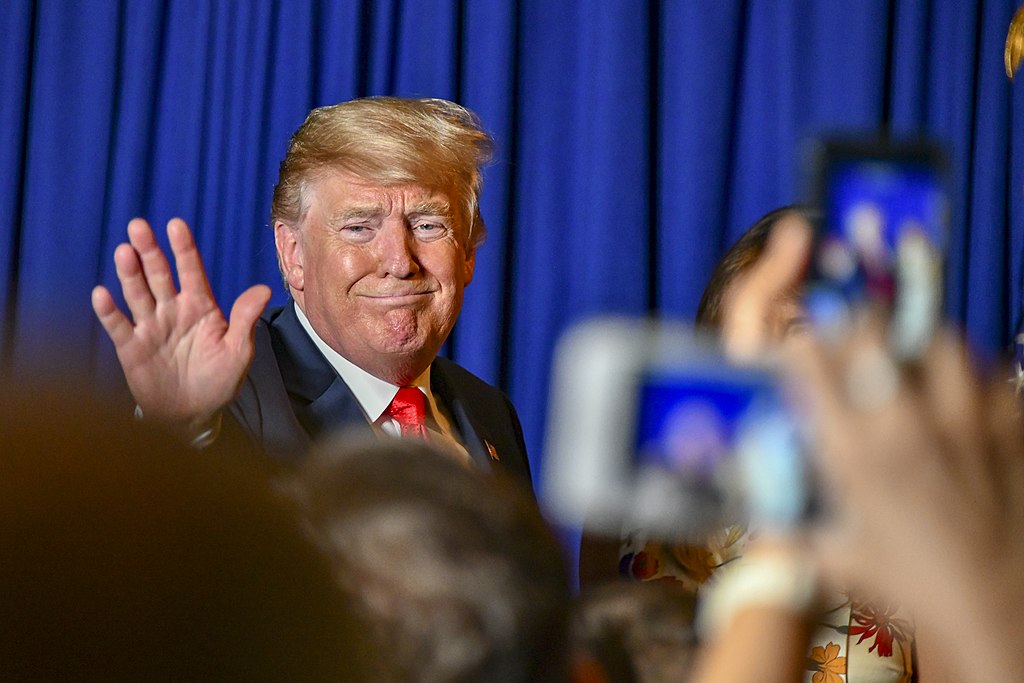WASHINGTON (June 10, 2024) - While addressing supporters in Las Vegas, former president Donald Trump condemned President Joe Biden's immigration policies, calling them a "nightmare" and promising mass deportations if reelected.
At his first rally since being convicted of felony charges, Trump criticized Biden’s recent executive order on the border as "weak" and launched his rebranded Latino outreach effort. The rally, marked by chants and intense rhetoric, underscored immigration as a key issue in the 2024 election.
Faculty experts at the George Washington University are available to provide context, commentary and analysis on this matter. If you would like to speak to an expert, please contact GW Media Relations at gwmedia gwu [dot] edu (gwmedia[at]gwu[dot]edu).
gwu [dot] edu (gwmedia[at]gwu[dot]edu).
Immigration Rhetoric
Elizabeth Vaquera is the inaugural Director of the Cisneros Hispanic Leadership Institute and an Associate Professor of Sociology and Public Policy and Public Administration at the George Washington University. Vaquera's research focuses on vulnerable and diverse groups, particularly Latinos/as and immigrants. Her work has analyzed the character and importance of immigrant status, race, and ethnic identity in outcomes such as education, health, and emotional and social well-being. In addition to an extensive body of work published in leading peer-reviewed journals, Vaquera is the co-author of several books, the most recent of which, Education and Immigration, examines the educational experiences of immigrants and their children living in the U.S.
“The first term of the Trump administration gives us a lot of information on how the second term could be, but also his rhetoric on the campaign trail is pretty explicit about his plans,” Vaquera said in this video on immigration policy under the Trump administration.
Peter Loge is the director of GW’s School of Media and Public Affairs (SMPA). He has nearly 30 years of experience in politics and communications, having served as a deputy to the chief of staff for Sen. Edward Kennedy during the 1995 shutdown, a VP at the US Institute of Peace in 2013, and held senior positions for three members of the U.S. House of Representatives. Loge currently leads SMPA’s Project on Ethics in Political Communication and continues to advise advocates and organizations.
“Our candidates and elected officials need to stop attacking the institutions that they hope to occupy. You can’t burn down a house and expect to live in it,” Loge says in this video on how political rhetoric impacts democracy. We need to stop attacking each other’s core values. We need to stop calling our neighbors the enemy. We need to stop attacking the government. Candidates, pundits and politicians need to stop attacking the institutions with which we rely...If we attack these things, eventually voters are going to believe these politicians and we’re going to continue to fray as a nation.”
Extremism & Extremist Rhetoric
Matt Dallek, a professor at GW’s Graduate School of Political Management, is a political historian with expertise in the intersection of social crises and political transformation, the evolution of the modern conservative movement, and liberalism and its critics. Along with four co-authored books, Dallek is the author of Birchers: How the John Birch Society Radicalized the American Right, which explores the history and influence of America’s right-wing activism.
Jon Lewis is a research fellow at the GW Program on Extremism. He studies domestic violent extremism and homegrown violent extremism, with a specialization in the evolution of white supremacist and anti-government movements in the United States and federal responses to the threat. Lewis is the co-author of two major Program reports on the events of January 6th, as well as numerous long form publications on the Proud Boys and Oath Keepers and their role in the events of January 6th. In addition, Lewis manages the Program's Capitol Hill Siege database, which is a public tracker for all federal cases stemming from J6 participation.
“The rhetoric is meeting these people where they are. You have individuals who are not sad to see fascism if there’s an American flag on the wall. Those who are willing to embrace those harder, more authoritarian fascist edges as long as it’s their guy” Lewis says in this video about how political rhetoric can embolden extremism.”
-GW-




